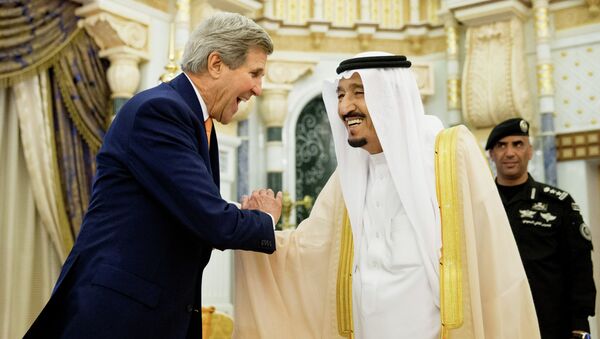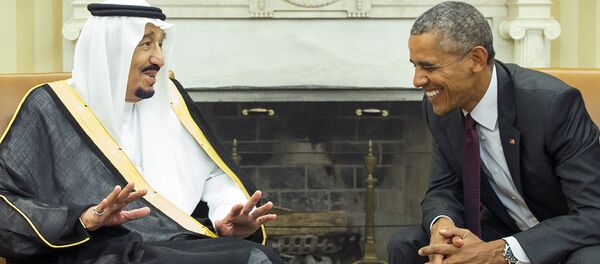The brutal execution of Shiite cleric Sheikh Nimr al-Nimr has prompted a wave of protests around the globe and aggravated Sunni-Shiite tensions; what makes matters even worse, Washington has failed to condemn Riyadh, Medea Benjamin, a US political activist and cofounder of Global Exchange and Code Pink, emphasizes.
"On January 2, the Saudi government executed 47 people, most of them by beheading. Those executed included Sunnis convicted of al-Qaeda-affiliated attacks, as well as Shia opponents — Sheik Nimr al-Nimr and three others arrested when they were still juveniles. The killing of al-Nimr has sparked a massive reaction because he was a prominent religious leader who defended the Shia minority and criticized the abuses — both domestic and foreign — of the Saudi regime," Benjamin writes in her recent piece for Opednews.com.
However, the Shiite cleric had never called his coreligionists for violence, Benjamin underscores. Still, al-Nimr was detained and charged with sedition, disobedience and bearing arms in 2012.
"To add insult to injury, Sheik al-Nimr's nephew, Ali al-Nimr, was targeted and arrested at the age of 17 for protesting government corruption, and his since been sentenced to beheading and public crucifixion," the US activist adds.
Riyadh is known for its repeated hostile actions against Shiites, both in Saudi Arabia and in neighboring countries. The Saudi military intervention in Yemen has been aimed against the Shiite sect of Houthis.
The cleric's execution has seriously exacerbated Saudi-Iranian tensions; Riyadh's move is likely to complicate Saudi Arabia's relationship with the Shiite-led government in Iraq, according to Benjamin.
The US political activist underscores that although Washington has expressed concerns over the cleric's killing, the US leadership has not raised a finger to liberate al-Nimr.
"Instead of insisting on al-Nimr's release during his years in prison and echoing Amnesty International's condemnation of his "deeply flawed" trial, the US government was silent," she stresses.
For decades both Democratic and Republican leaders have backed Saudi Arabia, considering Saudi's oil as a strategic advantage. Washington has blindly supported the Gulf monarchy despite its repeated human rights abuses, the activist notes.
"The killing of Sheikh al-Nimr should serve as a prime moment for the US to reconsider its alliance with the Saudi regime, a regime that not only denies human rights to its own people but exports death and destruction abroad," Benjamin stresses.



